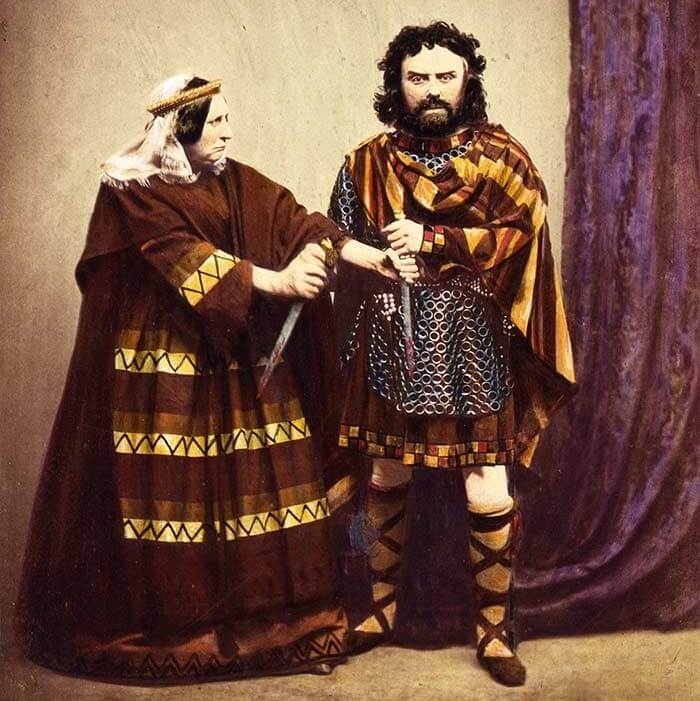Macbeth by William Shakespeare is perhaps the most famous work of the Bard of Avon. Macbeth by Shakespeare also was a work, where he tried his best to turn historical facts into events of a play, that would make his King – James I, look and feel good as far as his ancestral lineage was concerned. But by doing so, he managed to twist historical facts and change the image of a King, who played a very important role in putting Scotland in the world’s map.
Thanks to the play of Shakespeare, Macbeth’s name has become synonymous with a villain, in western literature. But is this true reflection, of the history of a man who was considered to be a remarkable Scottish King in real life? To understand the Journey from historical - Macbeth as a tragic hero, to the conniving and scheming lead character of a play, first we must understand the difference between the fictional character and Macbeth’s historical background.
This epic play written by William Shakespeare was written at the beginning of the 17th century (sometime between 1604 and 1606) during the reign of King James I of England, who previously as James VI ruled over Scotland. The King was superstitious, believing in witchcraft and its ill effects. He had also faced a constant threat from his rivals, some of whom like – plotters of Gunpowder Plot of 1605, were quite desperate & dangerous. All these made the king quite overtly suspicious & sometimes violent. All these facts would find their place in the fictional play of Macbeth by William Shakespeare.
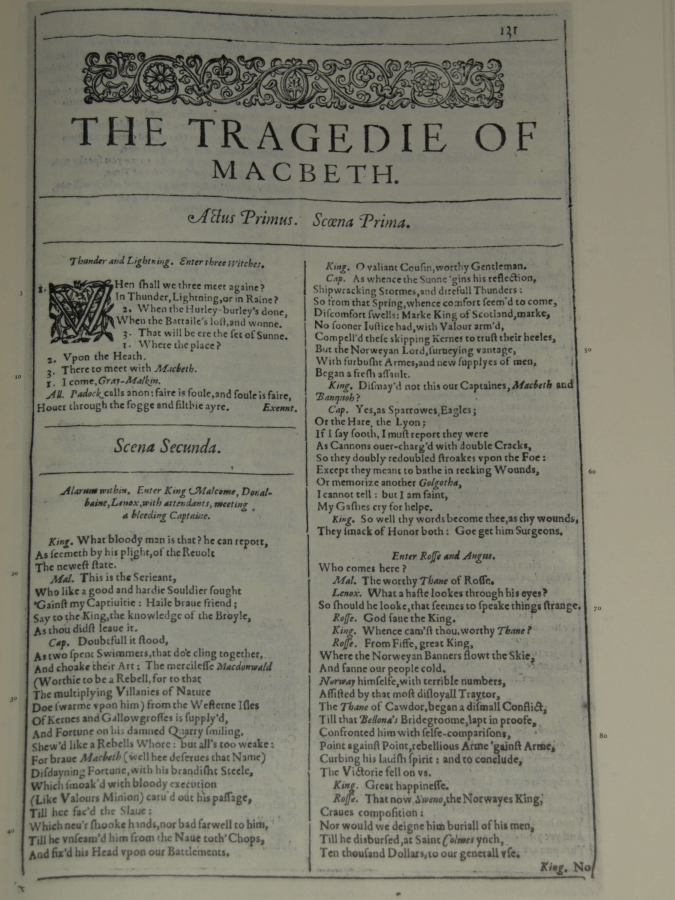
The fictional play starts with two generals of King Duncan (King of Scotland); Macbeth and his friend Banquo, returning home after destroying the armies of the King’s enemies in a battle. As the two unsuspecting & tired generals travel through the open countryside, they suddenly encounter 3 witches. They without any invitation, go on to predict the future of Macbeth, who is declared, will soon become – “Thane of Glamis”, “Thane of Cawdor” (Thane being a Scottish nobleman and landlord) and finally the King of the land.
While Macbeth is shocked and becomes lost for words, Banquo can’t control his inquisitiveness. He asks the witches about his own destiny. Unfortunately, he does not get encouraging news like Macbeth. He is assured that his coming generations would become kings, but he himself would not be so lucky. The witches suddenly vanish without warning, however very soon the good news arrives. Macbeth has been promoted to “Thane of Cawdor” by the King, thanks to his victorious achievement. Initially skeptical of the witches, the good news replaces the doubt in Macbeth’s heart with greed and ambition.
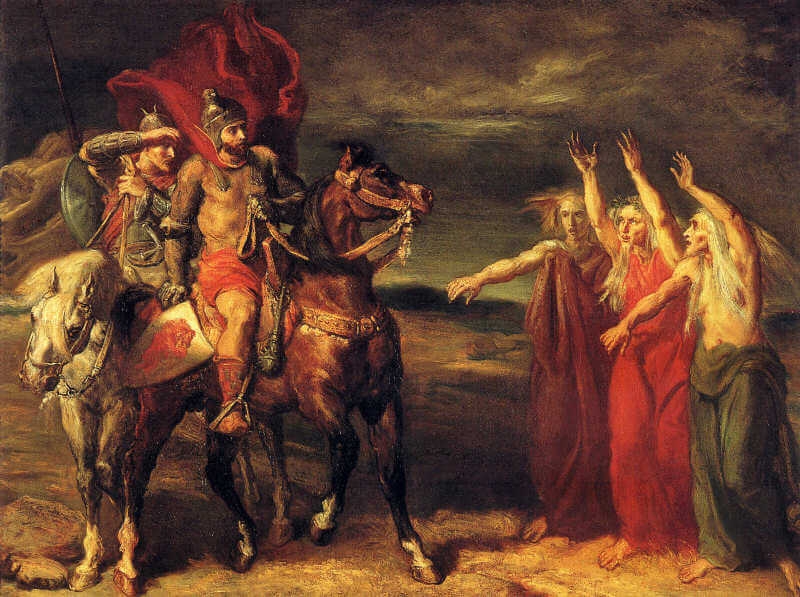
Macbeth sends a message to his wife Lady Macbeth informing her about the prophecy of the witches. Uncontrollable greed enters the heart of Lady Macbeth. A jubilant King Duncan, who has already declared his son – Malcolm, as his heir apparent, visits Macbeth’s castle to celebrate the occasion. Not willing to wait for destiny to take its own course, Lady Macbeth poisons her husband’s mind and forces him to kill the king, who is a guest in his castle. King Duncan is stabbed in his sleep, by Macbeth. The guards/servants of the king, who had been deliberately forced to get drunk remain totally clueless as to what is happening.
The next morning, Macduff – The loyal Thane of Fife, arrive in the castle along with Lennox – a Scottish nobleman. As they enter the King’s chamber, they find him dead. Macbeth kills the guards accusing them of murdering the king. Later, on being questioned, he replies that his actions were guided by anger and not nefarious intentions. However, King Duncan’s sons – Malcolm and Donalbain understand the foul play and escape to England and Ireland respectively. This allows Macbeth an opportunity to link the heir of the king, to his murder. Taking advantage of the situation, Macbeth ascends to the throne.
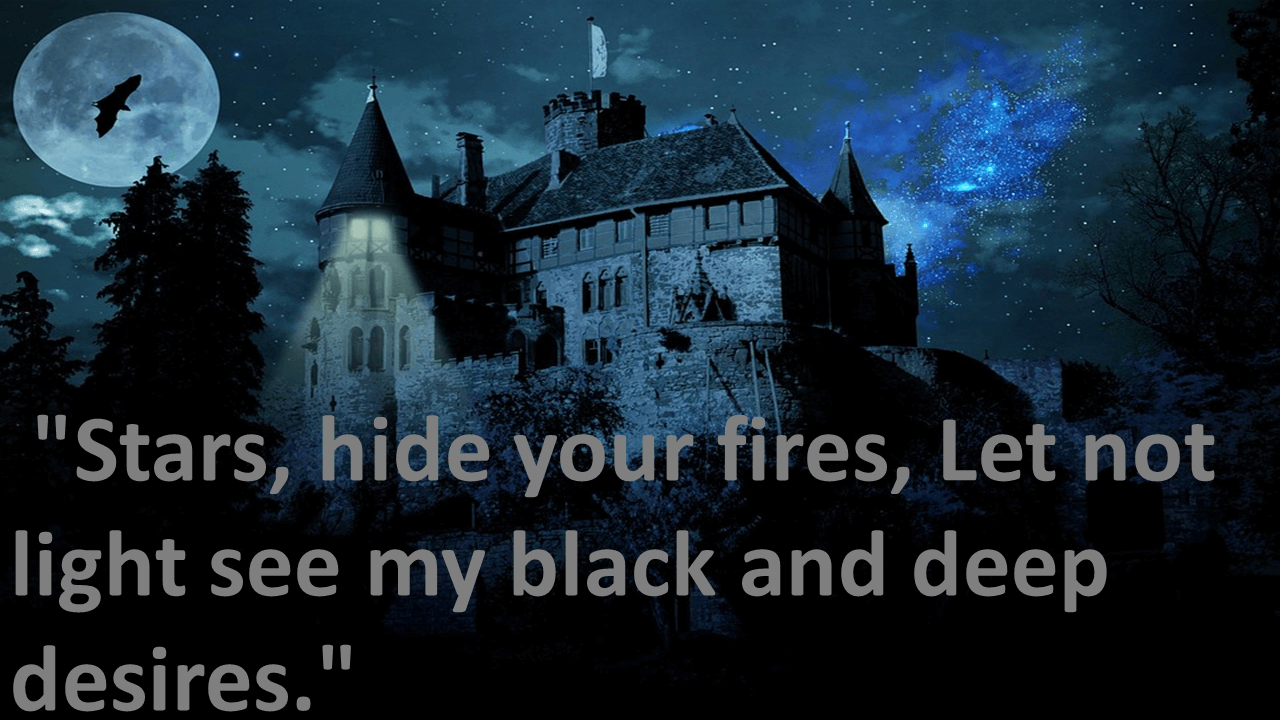
In spite of becoming the King, Macbeth still remains suspicious and paranoid about the people around him. He becomes suspicious of Banquo, as it is his heirs and not Macbeth’s children, who will become the future king. So, he sends assassins to murder him. Although Banquo is killed, his son – Fleance manages to escape. This further infuriates Macbeth, as he is even more paranoid now.
Macbeth’s increasing paranoia and insecurity force him to visit the witches once again, seeking clarification about his future. The witches give him 3 predictions - to beware of Macduff, that nobody born of a woman can harm him and he will face no danger till Birnam Wood (trees from the forest) comes to Dunsinane. He becomes quite assured realizing that forests can’t move and all men are born of women. To wipe out the only threat obvious to him, he again sends assassins to kill Macduff and his family. Although Macduff’s wife and son are put to death, Macduff himself has escaped to England.
The continuous murder of friends & allies by Macbeth drives his wife insane. She moves around the castle, sleepwalking and talking to herself about the horrible acts that she had forced her husband to commit. She even tries to wash off the imaginary bloodstains that she believes, has stained her hands. Her descent to madness is a philosophical message by Shakespeare, that crime never pays.
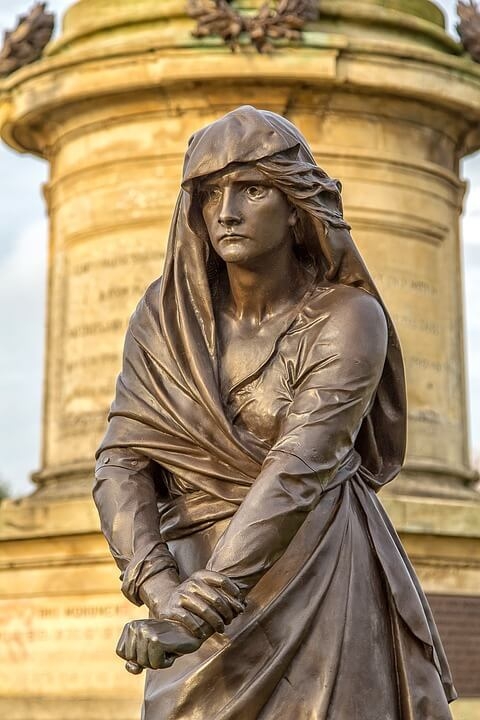
In England, an enraged Macduff angry over the killing of his innocent wife and son decides to take revenge. He joins forces with Prince Malcolm – son of the murdered King Duncan, who has been able to raise an army. Englishman Siward – the Earl of Northumberland, joins forces with the duo, as the three of them march against Macbeth’s castle. On their way, the soldiers cut down tree limbs from Birnam wood, to camouflage their army. So, in this way Birnam Wood finally comes to Dunsinane castle, proving one of the predictions made by the witches to be true.
Even more bad news keeps coming to Macbeth as he learns that his wife has committed suicide, because of her overwhelming guilt. Many Scottish nobles support Macbeth’s opponents, as they are scared of mindless mayhem and atrocities committed by Macbeth and find him unpredictably dangerous. A heartbroken Macbeth fortifies his position in Dunsinane and waits for the English forces. However, when he finds out that his enemies are using shield made of tree branches cut from Dunsinane Woods, he becomes apprehensive.
In the battle that follows, the army of Macbeth’s enemies overwhelm his castle, and Macbeth meets Macduff in battle. Pretty sure of himself, that no man born of a woman can kill him, Macbeth is soon shocked, when he comes to know that Macduff was born by Caesarean section, hence the witch’s predictions are not applicable for him. Macbeth realizes that he has misinterpreted the word of witches & his end is near. In spite of realizing his doom, he keeps on fighting, till finally, Macduff manages to kill him. Malcolm becomes the new king of Scotland.
Macbeth, King of Scotland was very much a real person. However, the real Macbeth was certainly not the devil incarnate that William Shakespeare had portrayed him to be. He was a much more likable character, who was loved by his people and at a point of time, was even on very good terms with the Pope himself. In fact, as far as the name of Scottish king is concerned, Macbeth meaning is – a righteous man or religious man (Although some sources give the literal translation as – “Son of Life”, but it was not the meaning in practical context).
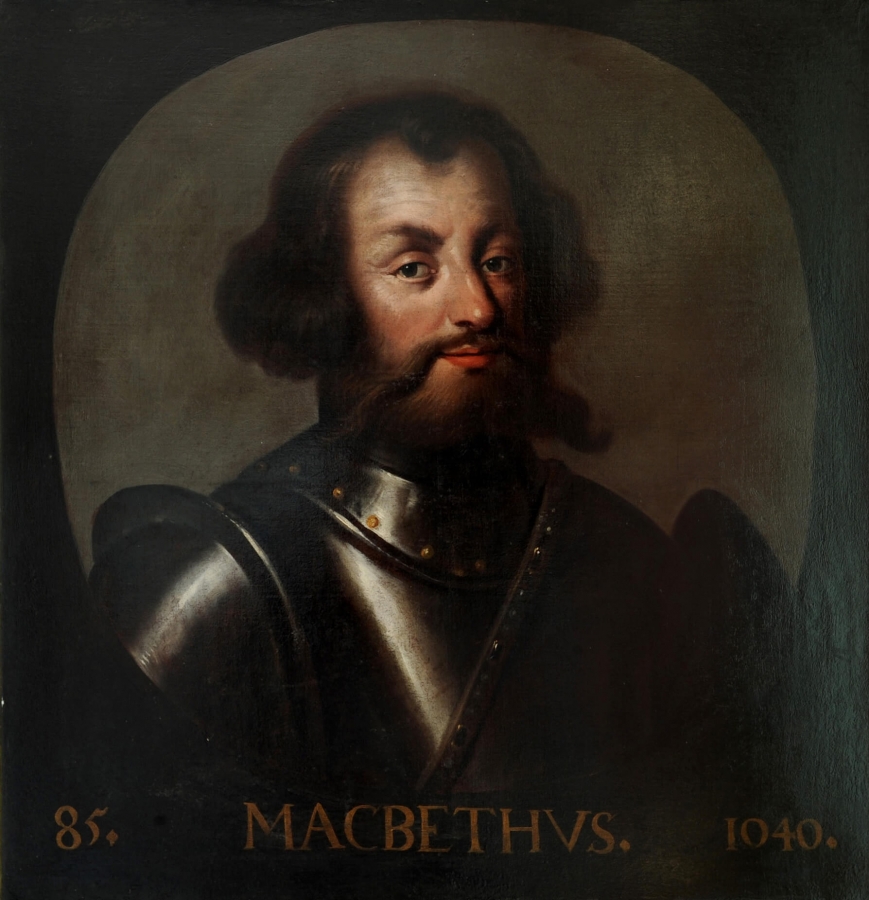
The real Macbeth was born almost 600 years before Shakespeare’s time and very little is known about his early life (that may have been one of the reasons, that allowed Shakespeare to practice his artistic liberty). Nicknamed – “The Red King”, he was born in 1005 AD. His father – Findlaech of Moray, was a provincial ruler of Scotland. He was also the grandson of the King of Scotland – Malcolm II, who was his maternal grandfather. This made the real Duncan I (the real king also described in the play of Shakespeare), who too was the grandson of Malcolm II, a cousin (half-brother according to some) of Macbeth. So, the real Macbeth, in contrast to the one in Shakespeare, had indeed legitimate claim to the throne.
In the year 1034 AD, Duncan I became King of Scotland (after the death of his grandfather Malcolm II & succeeding him), Macbeth was theoretically a duke under him. In contrast to the elderly, strong, wise and benevolent King as in the story, the real King was a young, weak and foolish ruler, who took decisions without thinking about their future effects.
It was the development of some disagreement, between the Macbeth and King Duncan, that led King Duncan I to invade Macbeth’s domain in 1040 AD. In the battle that followed, he was killed. On the death of King Duncan, Macbeth became king of Scotland in 1040 and ruled successfully for 17 years, from his castle at Dunsinane.
In another battle that followed in 1045, between the deceased king Duncan’s father – Crinan of Dunkeld and Macbeth ended with the death of Crinan of Dunkeld, and widow of King Duncan escaping to safe lands along with her young children – future kings Malcolm III (eldest son of Duncan I) and Donald III.
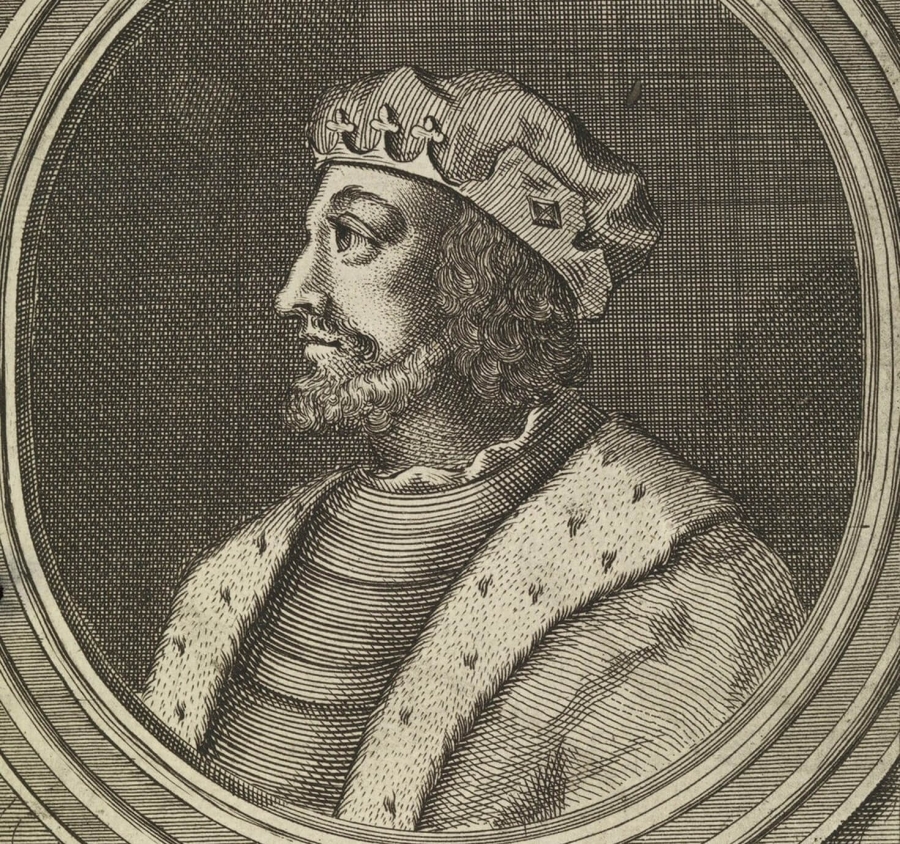
After many years of peace, in 1054, Malcolm invaded Macbeth’s Kingdom, of which he claimed to be rightful heir, as the son of the dead King Duncan. Helping him in his endeavor was Siward – Earl of Northumbria, an English Nobleman. On 27th July 1054, the two armies clashed near Dunsinane. When the battle ended, Macbeth had lost 3000 men, whereas his enemies had lost only 1500 men.
Although the battle was indecisive, Malcolm got the control of the southernmost part of Scotland (Cumbria) and Macbeth retreated further north. For the next 3 years, frequent clashes between 2 sides continued to occur. On 15th August 1057 AD, at the Battle of Lumphanan, which occurred in Aberdeenshire, Macbeth was killed by Malcolm’s men. Macbeth’s stepson – Lulach ruled in place of his father for another 7 months, when he too was assassinated by Malcolm’s men. On 25th April 1058AD, Malcolm Mac Duncan became King of Scotland.
Shakespeare’s work was part fiction and part history, that was based on Holinshed’s “Chronicles of England, Scotland, and Ireland”. However, unlike Shakespeare’s play, the real Macbeth - King of Scotland, certainly did not kill an old benevolent King Duncan in his sleep. The real King Duncan was a much younger man. It was King Duncan, who had attacked Macbeth’s domain and in the ensuing battle, King Duncan was killed, as would be natural in such situations.
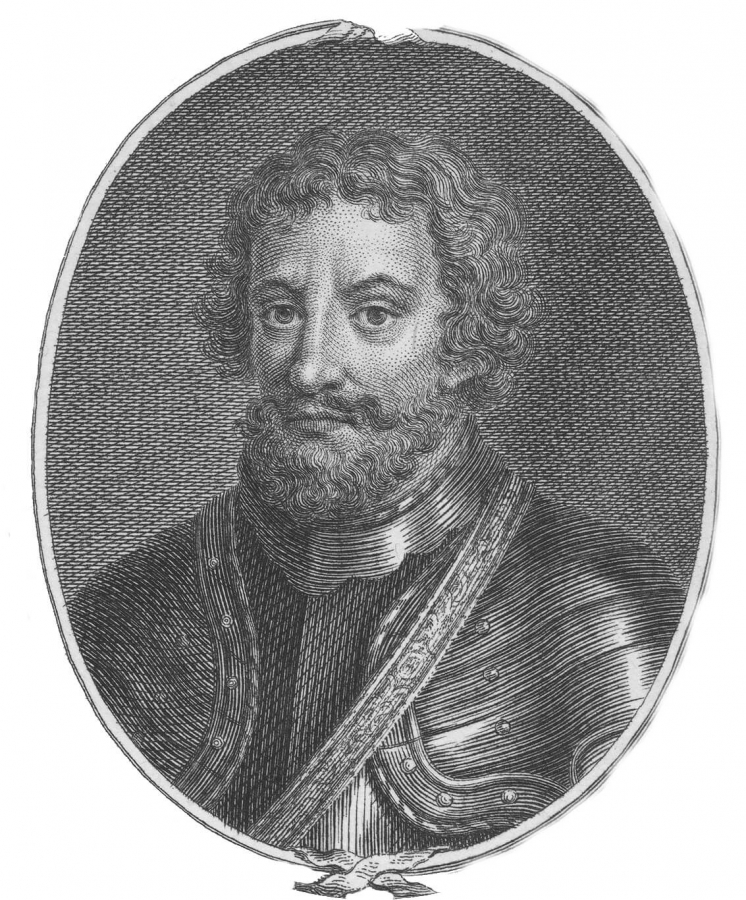
Macbeth was a just ruler, who build a prosperous kingdom and was loved by his people. The 17 years of his rule were relatively peaceful and new laws were made for the well being of his subjects. The officers of his court were required to defend orphans and women anywhere in his kingdom. Daughters were given the same inheritance rights as sons.
The relative stability in his kingdom could be judged by the fact that in 1050, he even visited Rome for a papal jubilee. Here he donated freely to the poor and contributed to the church. Macbeth had playedan important role in establishing the identity of Scotland internationally. Under him, Scotland emerged as a distinct nation, where people were bound by loyalty and common ties, in spite of living in sparsely populated hills and valleys. Improving the Infrastructure of Scotland, encouraging trade, making an alliance with the Holy Roman Emperor, establishing close ties with the church & visiting the Pope, were undertaken by King Macbeth to strengthen his kingdom. Thanks to Macbeth, Scotland made its mark in the European stage.
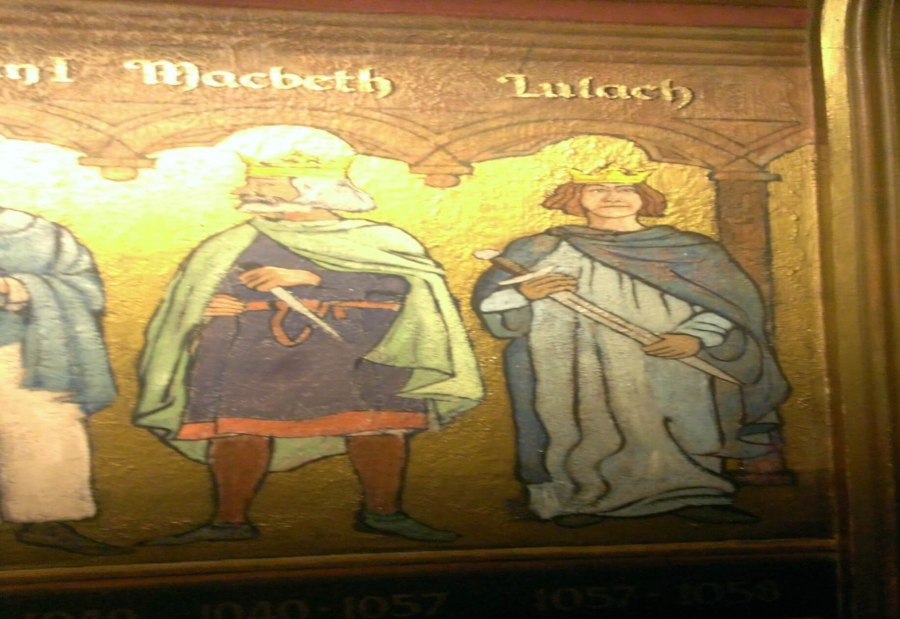
Unfortunately, it was the charitable nature of Macbeth, which created one of his life’s biggest problems. In the year 1052, political turmoil made Normans living in England flee to Scotland and seek sanctuary. They were given shelter by Macbeth, something which was not accepted nicely by the English lords. This situation was made more complicated by the son of deceased erstwhile king Duncan – Malcolm Mac Duncan, who was lobbying with the English Lords for help. This ultimately bore result when Siward – Earl of Northumbria finally decided to help Malcolm with a disastrous consequence for Macbeth.
King James loved artists and spent generously in promoting them. William Shakespeare’s acting company, aptly named – “The Kings Men”, in honor of King James, had made a contract with the king of England in 1603 and gave 10 to 20 shows per year. It was patronage given by King James I, which made Shakespeare quite rich.
It was imperative that Shakespeare should be in the good books of the King and his plays should please the king, whenever possible. Macbeth’s plot was written, keeping this in mind. Macbeth play was not just a means for entertainment or to satisfy the creating urge of the author, but was purposefully written to please the King.
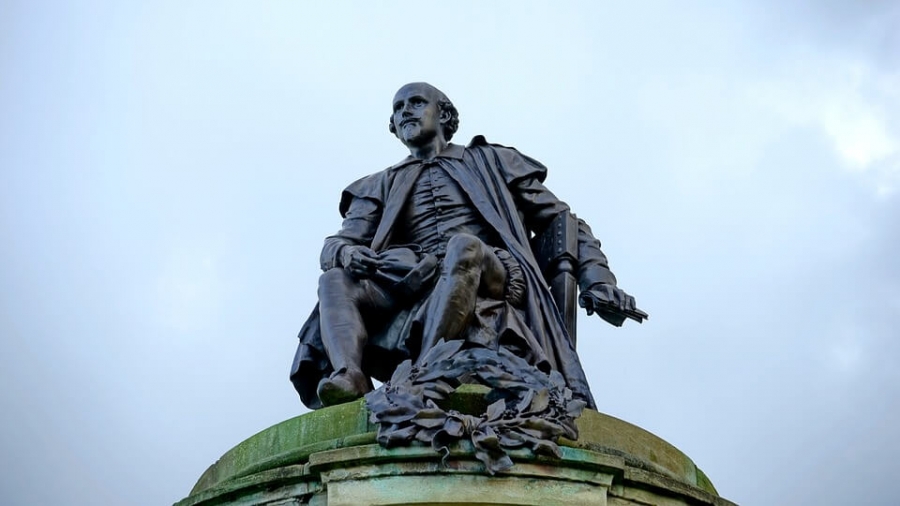
King James, I was descended from Malcolm III, who became King of Scotland after the death of Macbeth and his stepson. So obviously Malcolm III had to be the hero of the story. Similarly, the real-life Banquo was known to be involved in the murder of King Duncan. However, Banquo was also an ancestor of King James I (through another different line) and hence is showed as a kind man. The play shows how he remains loyal to his king and friends, till the end. He is much wiser than Macbeth and had deep insight into human nature, as per the story.
As King James, I firmly believed in witches and in their power, so witches are depicted in a pivotal role in the play. So comes the part, where the witches make predictions that heirs of Banquo will become king in the future. This would allow King James to trace his lineage centuries back & give the appearance, that his destiny had been decided far back. The King who was paranoid about conspiracies would find solace and confidence from the fact that it was a divine decision, that he would be king of both Scotland and England.
The relationship between Scotland & England (& an attempt to flatter the King’s Scottish background – he was originally King James VI of Scotland), apprehension for high treason & Roman Catholic plots (an indirect reference to Gunpowder Plot, where attempt was made to assassinate the king) all points an attempt to keep the King in good mood.
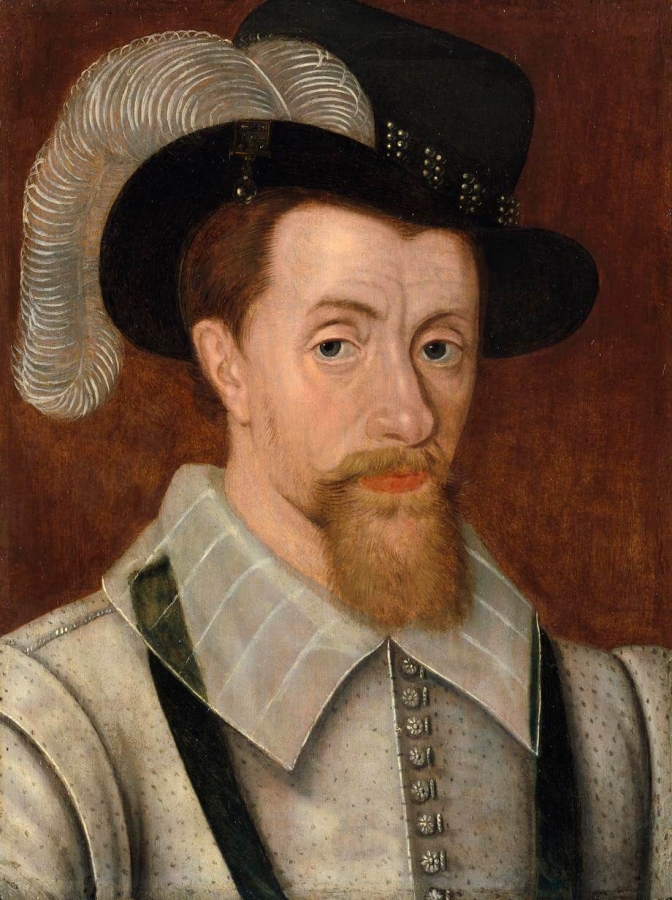
The protagonist of the story, Macbeth is shown as a traitorous person bereft of any morality and an evil man. However, in truth, Macbeth was greatly liked by people and ruled successfully for 17 years. The decisive battle between Macbeth and King Duncan, which was a turning point in Macbeth’s life occurred in Elgin, rather than Birnam Hill in Perthshire, as described by Shakespeare. Finally, even the death of real Macbeth occurred in Lumphanan, rather than Dunsinane, as described in the play.
It is very true that Shakespeare’s artistic liberty had indeed distorted the life, image, and character of Macbeth, King of Scotland. However, without Shakespeare’s work, very few people outside Scotland would have really heard about Macbeth and even far less would have really cared about Macbeth’s Character Sketch. Although fiction may show Macbeth as a tragedy, while history may say - Macbeth is a tragic hero; but the truth is without Shakespeare, there would have been no presence of Macbeth, in different (and distant) parts of the world, even 1000 years after his death.
